Okinawa is one of 5 blue zones in the world – places where people live longer than the average lifespan. Their secret? The food that they consume! Thanks to the great folks from Airkitchen, we were able to enjoy a cooking experience at Taste of Okinawa and find out exactly what kinds of foods that these local centenarian feast on!
What a Cooking Experience at Taste of Okinawa Entails
The cool thing about the cooking experience at Taste of Okinawa is that besides the cooking experience itself, there’s also a market tour where our guide, Rina, took us to the local markets where she bought the freshest ingredients for the meal we were about to prepare…
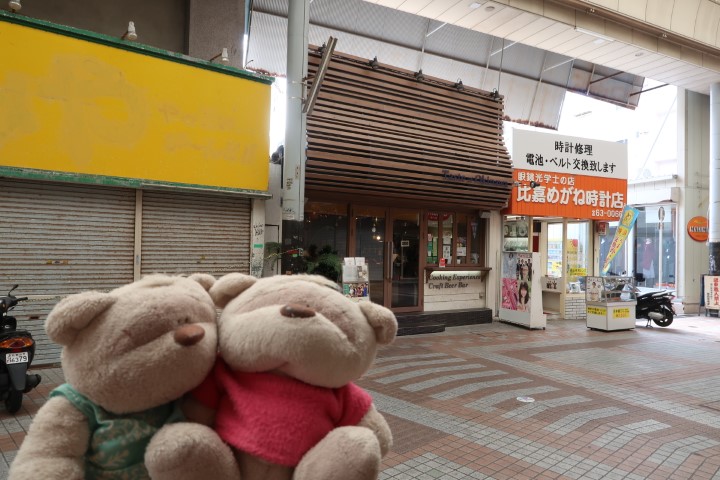
After arriving at Taste of Okinawa at 10:25am sharp, we were received by our instructor and guide, Rina. She warmly welcomed us and as there were no other groups joining this time, we were about to have a private tour and cooking experience! Before long, we set off on the historical market tour to get the ingredients for the day…
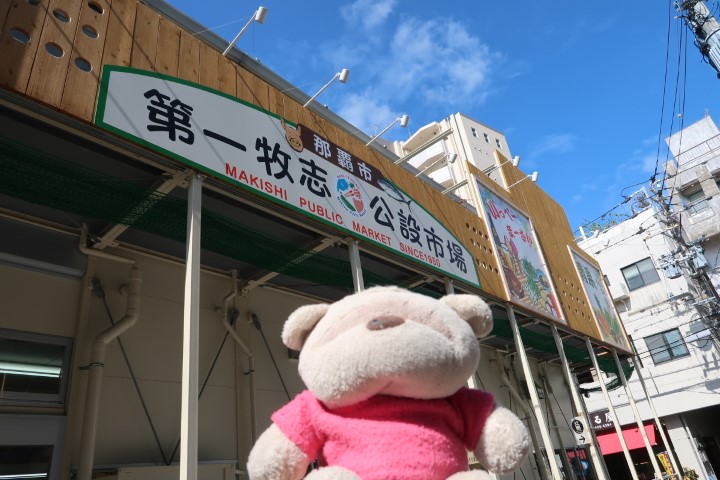
Our first stop was at Makishi Public Market which was first opened in 1950. There were originally 2 public markets but they have since merged. As renovations are underway, we visited the temporary market – which explains why the market is soooo clean!
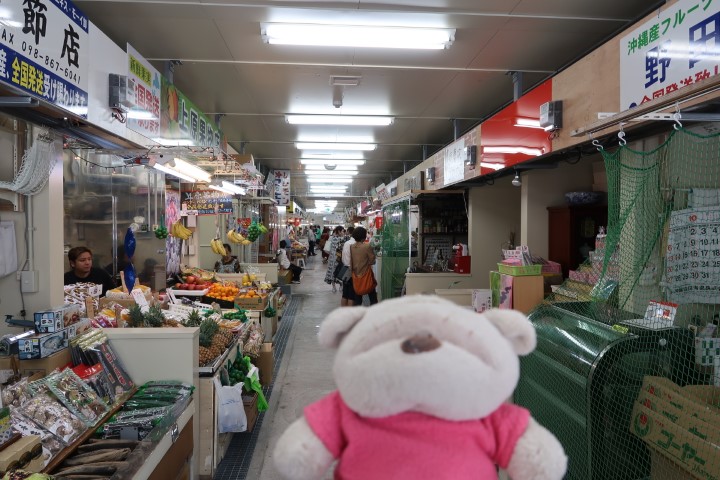
As we entered Makishi Market, we were surprised that there were no smells whatsoever, eventhough the very first stall was a fish stall. Impressed. Here, we observed the varied kinds of fish on sale. Noticed the yellow-striped, green fishes as well as large prawns on sale.
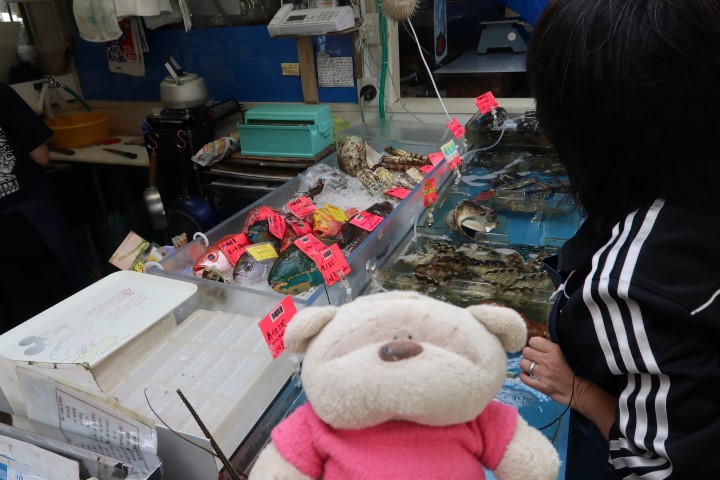
We also passed by a stall that sells sea grapes – a famous local delicacy in Okinawa. If you have tried it, you’d enjoy the fresh succulent texture as well as the “burst of fresh flavours” as you chew on its tiny nodules.
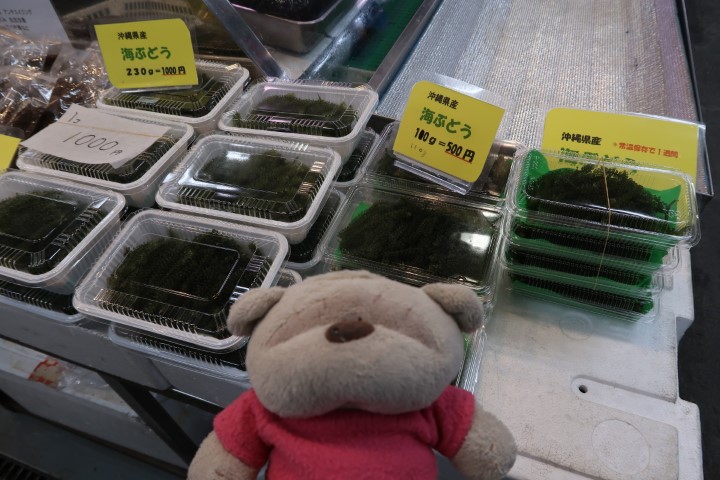
Next up, the pork stall. Here, we were introduced to a phrase by Rina…”The only part of the pig that we don’t eat, is the sound“. This means that the people of Okinawa eats every part of the pig, including the innards and pigs ears! Something Singaporean Chinese do as well! 
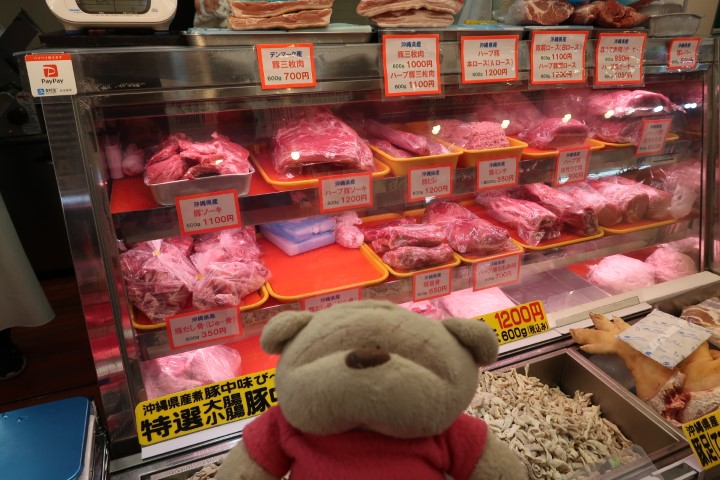
To round up our visit to Makishi Market, we got to try a bit of the local fish cakes. Similar in texture to the ones we have in Singapore but slightly sweeter…
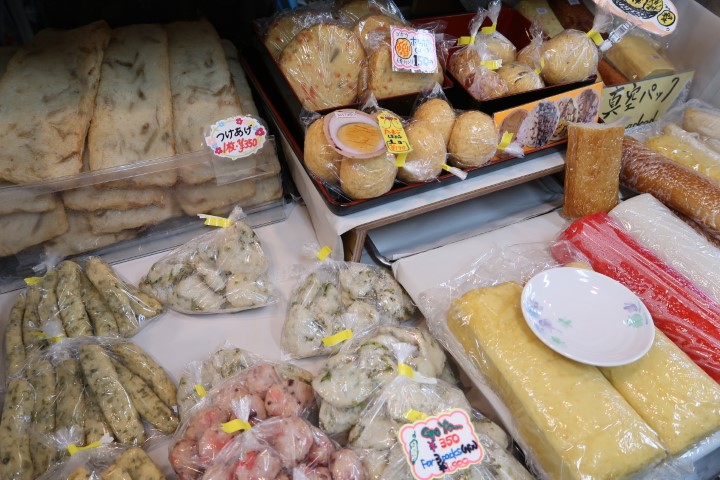
We continued our tour to a local stall that sold bonito flakes. Here, the dried, fermented, and smoked bonito are shaved into thin, transparent slices, which are usually ended as a garnish on food or in soups…
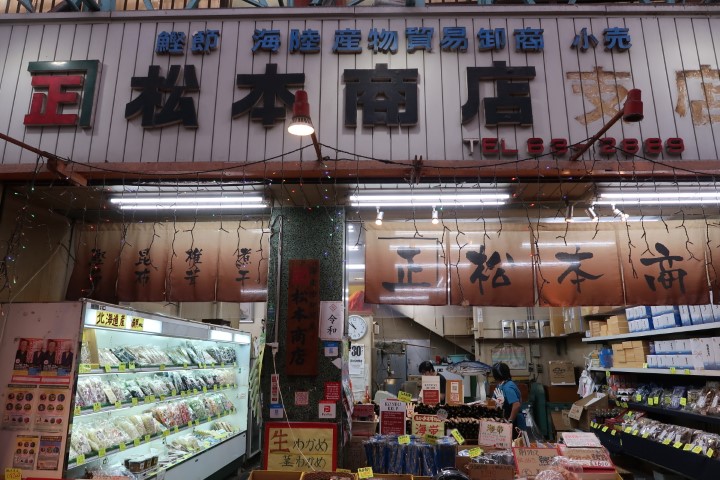
The owner then took one of her bonito and shaved them for us to try on the spot. Freshly shaved bonito flakes. Yum! Check out the following video to find out how to make bonito flakes from the smoked bonito fish…
Demonstration and tasting of Bonito Flakes in Okinawa
Next, we headed to a local supermarket for the freshest beancurd (tofu). Here, the tofu are delivered fresh – 3 times daily! :O As we took the tofu out, it was still warm – signifying the freshness of it.
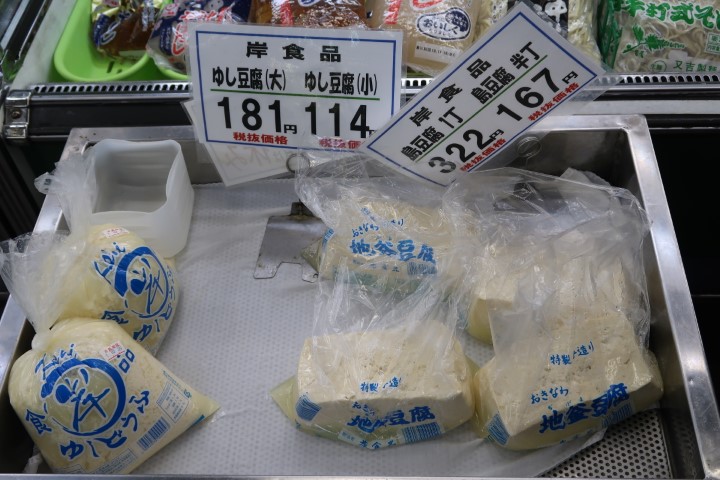
Lastly, we headed to a local vegetable stand to get the star of one of our dishes – the Goya (Okinawa Bitter gourd). The goya of Okinawa is unique because of its shape and taste. It has an uneven texture on the surface such that when its cut into smaller pieces, the distinctive texture can still be visibly seen. As for the taste, its mildly bitter but packed with a nice crisp on every bite. Love it! Perhaps, this is the secret to the longevity of the people of Okinawa…
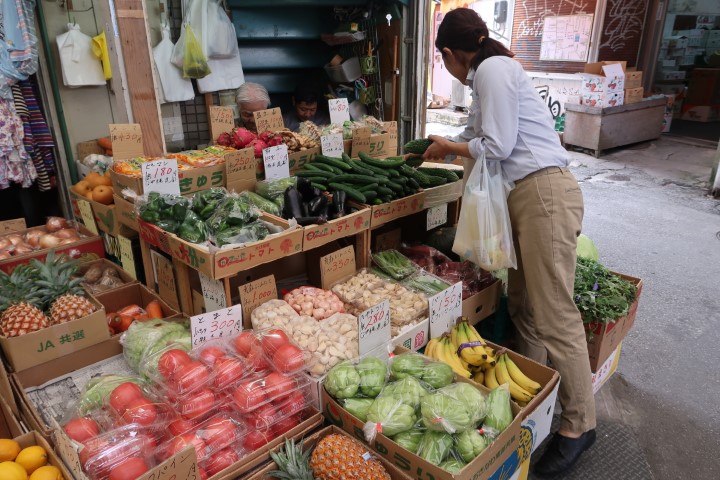
After getting all of our ingredients, we headed back to Taste of Okinawa for our cooking experience! This time, we would be cooking the Goya Champuru Set!
Review of the Goya Champuru Set at Taste of Okinawa
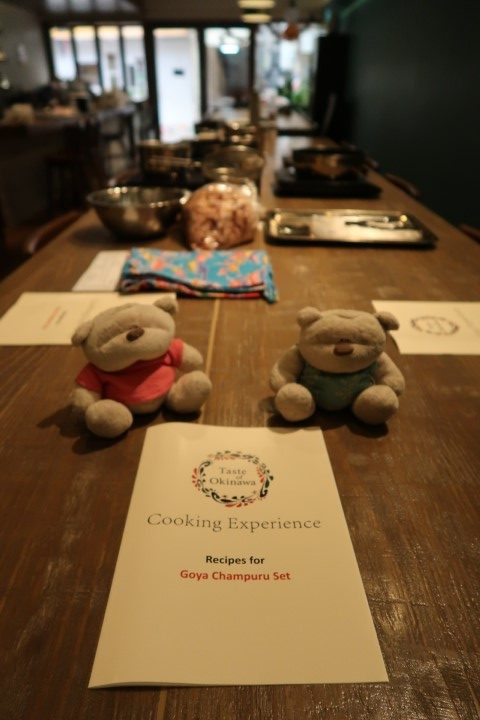
The Goya Champuru Set at Taste of Okinawa includes 4 typical Okinawan dishes
1. Goya Champuru. A famous Okinawa dish that is a stir fry of tofu, eggs and goya, topped with bonito flakes.
2. Rafute with White Miso. A moist and tender pork belly reduced with a sweet miso saucec.
3. A-sa Soup. A mild-flavoured soup made with bonito soup stock and ‘a-sa’ (Okinawan seaweed).
4. Sata Andagi. Traditional Okinawan-style doughnuts made with Okinawa brown sugar.
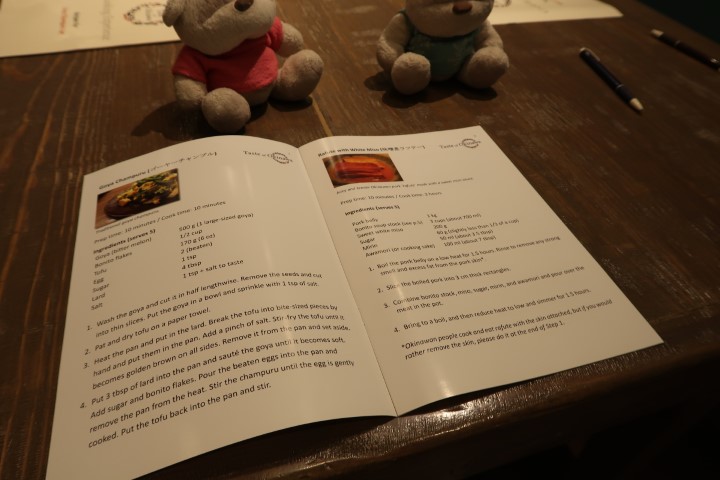
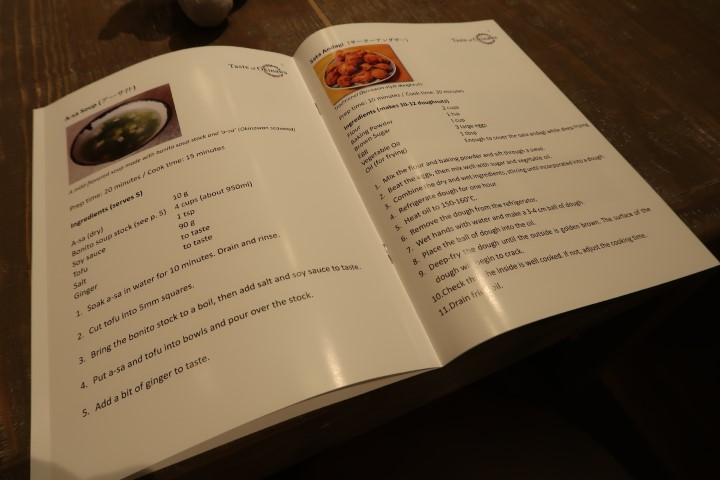
During the cooking experience, Rina played songs by Begin – a famous Okinawa band that really adds to the feel of Okinawan food as the band plays with traditional Sanshin (a traditional 3-stringed lute). Rina then layed out the instructions for the menu and we had to weigh out all the ingredients one by one with a digital kitchen weighing scale. Although both of us were weighing different items, eventually while cooking, we rotated to “swirl” the dishes around.
There were a few tips that we learnt during the cooking experience at Taste of Okinawa. For instance
– The white bits of the goya should be completely removed so as to reduce the bitter taste
– Bonito flakes after boiling in water to extract its taste (for the A-sa soup), is usually strained and thrown away
– While reducing the miso sauce of the Rafute, you must continually place the sauce on the parts that are not covered by the sauce so as to ensure the same taste throughout the Rafute
– Freshly fried Sata Andagi tastes best!
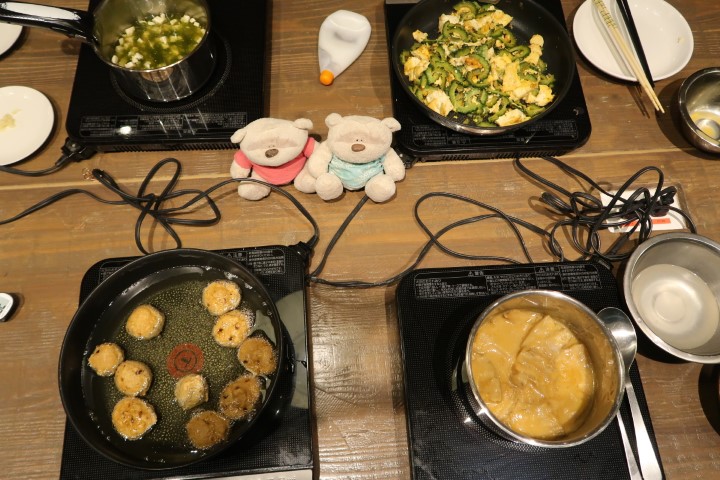
Before long, all our 4 dishes were cooked. Rina set us down and we helped to set our own table with rice on the front left, dishes around and chopsticks to the front right. She then helped to finish up with the Sata Andagi and strain out the remaining oil. During this time, we feasted on our cooking!
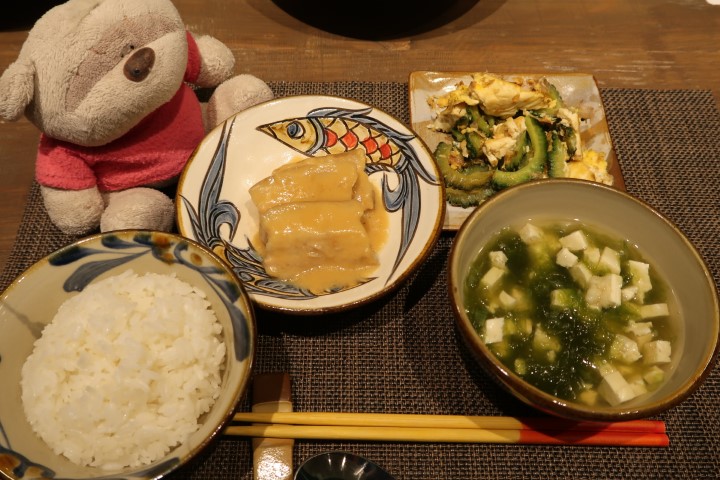
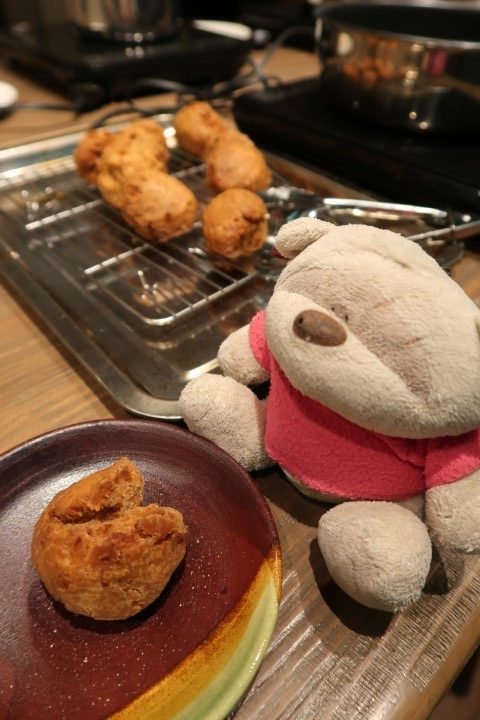
Taste of Okinawa also serves beer. This time, we had the Ike IPA (1300 yen) – a little expensive but complemented the dishes really well! We totally enjoyed the Rafute with its tender, moist and flavourful meat infused with sweet miso. Went superbly with the fragrant rice. Our other favourite was the Goya Champuru. Rina was surprised that we finished ALL of it! Can’t help it if our cooking skills are that good right? 
To round of the meal, we had the freshly fried Sata Andagi as desserts. It was crisp on the outside and chewy on the inside with the light taste of brown sugar all round. Perfect, not overwhelmingly sweet. Of course, to make the batter, we had to use some strength to mix the flour, brown sugar and eggs well.
If you enjoyed our content, “Like” us on Facebook Today!
We thoroughly enjoyed the cooking experience at Taste of Okinawa. If you’re thinking of joining a cooking experience wherever you are in Japan, do check out Airkitchen. The intuitive design of the website made it easy to purchase the experience and link up with the host. Highly recommended for an alternative experience in Japan and Okinawa!
Related Posts
Greece Travel Itinerary Day 1: Arriving at Syntagma Square and Exploring the Ancient Ruins of Athens
Greece Travel Itinerary Day 3: Visiting the ruins of Athens and relaxing at the Mall Athens!
Greece Travel Itinerary Day 5: Relaxing Day at Fira’s Kafieris Apartments on the Cliff Santorini
Greece Travel Itinerary Day 6: Fira Attractions and the Best Sunset in Santorini @ Imerovigli!
Greece Travel Itinerary Day 8: Day Trip Driving Around the Island of Naxos
Greece Travel Itinerary Day 9: Exploring Naxos Old Town and Arriving at Paros Island
Greece Travel Itinerary Day 11: Chilling in Paros and Listening to Zorba the Greek LIVE!
Greece Travel Itinerary Day 12: Spending our last day back in Athens!
Taste of Okinawa Review: Cooking Experience by Airkitchen.me
Athens Attractions: The Top 6 Things to do and Attractions in Athens!
Santorini Attractions: The Top 13 Things to do and Attractions in Santorini!
Naxos Attractions: The Top 12 Things to and Attractions in Naxos
Paros Attractions: Top 8 Things to Do and Attractions in Paros
What to eat in Greece: Traditional Greek Food not to be missed in Greece!



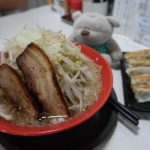








 Buy us a
Buy us a 

 OR
OR

